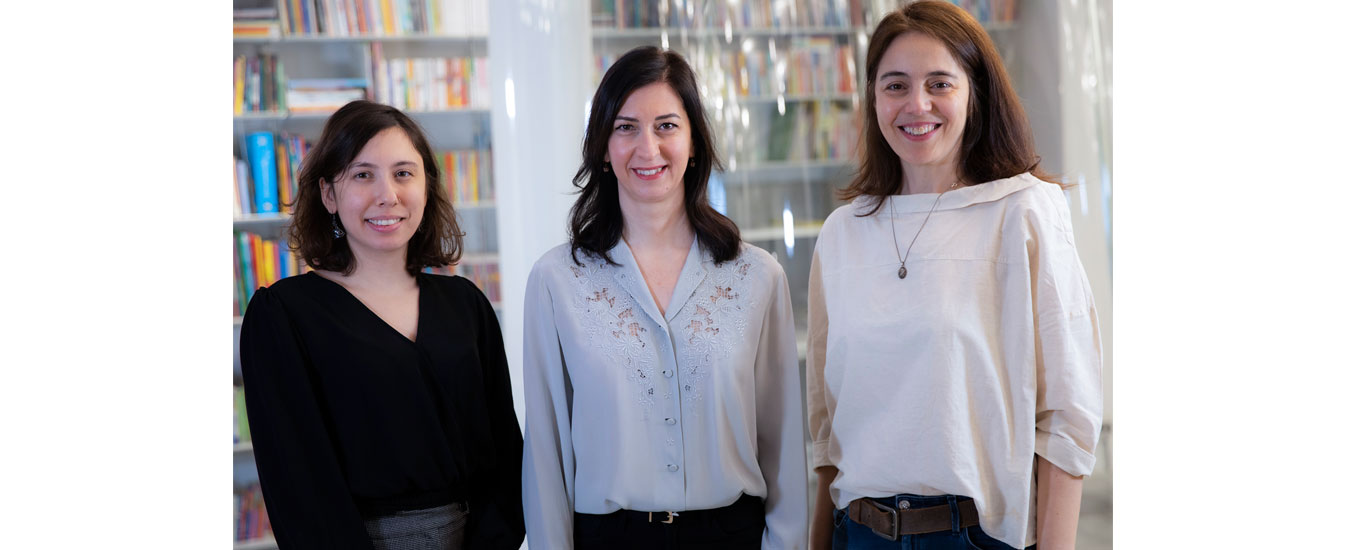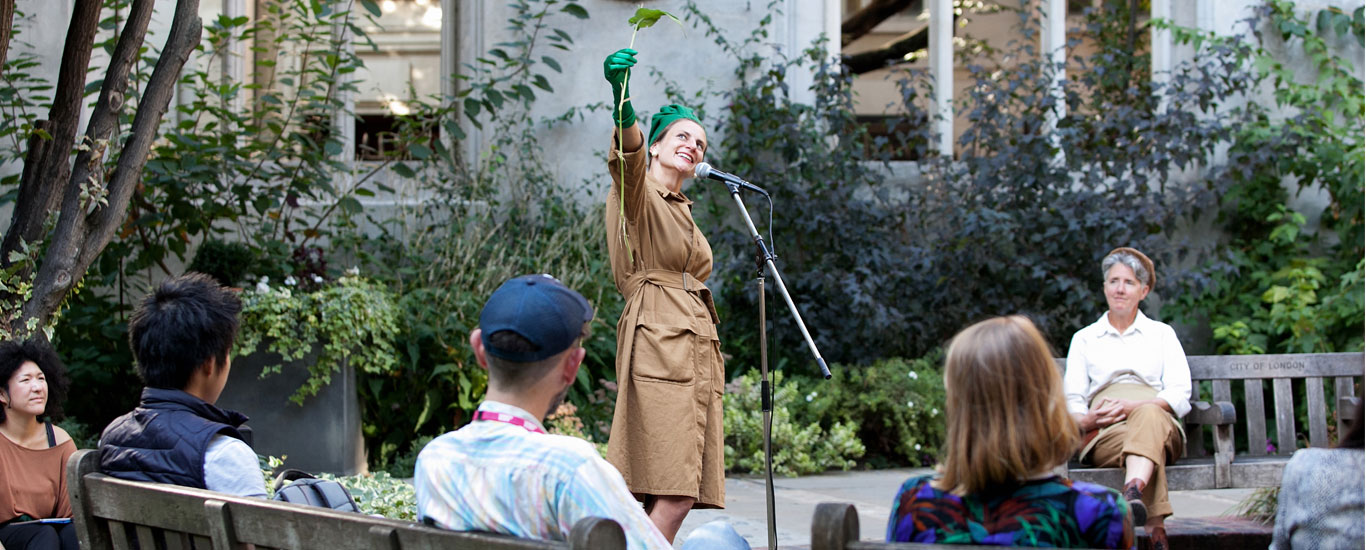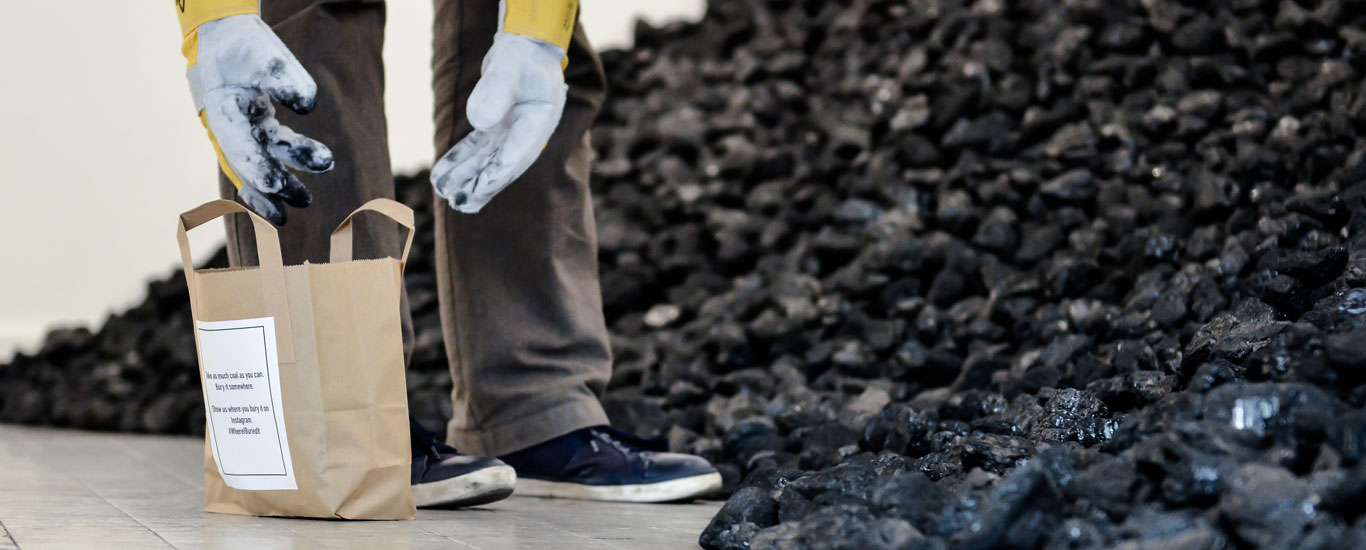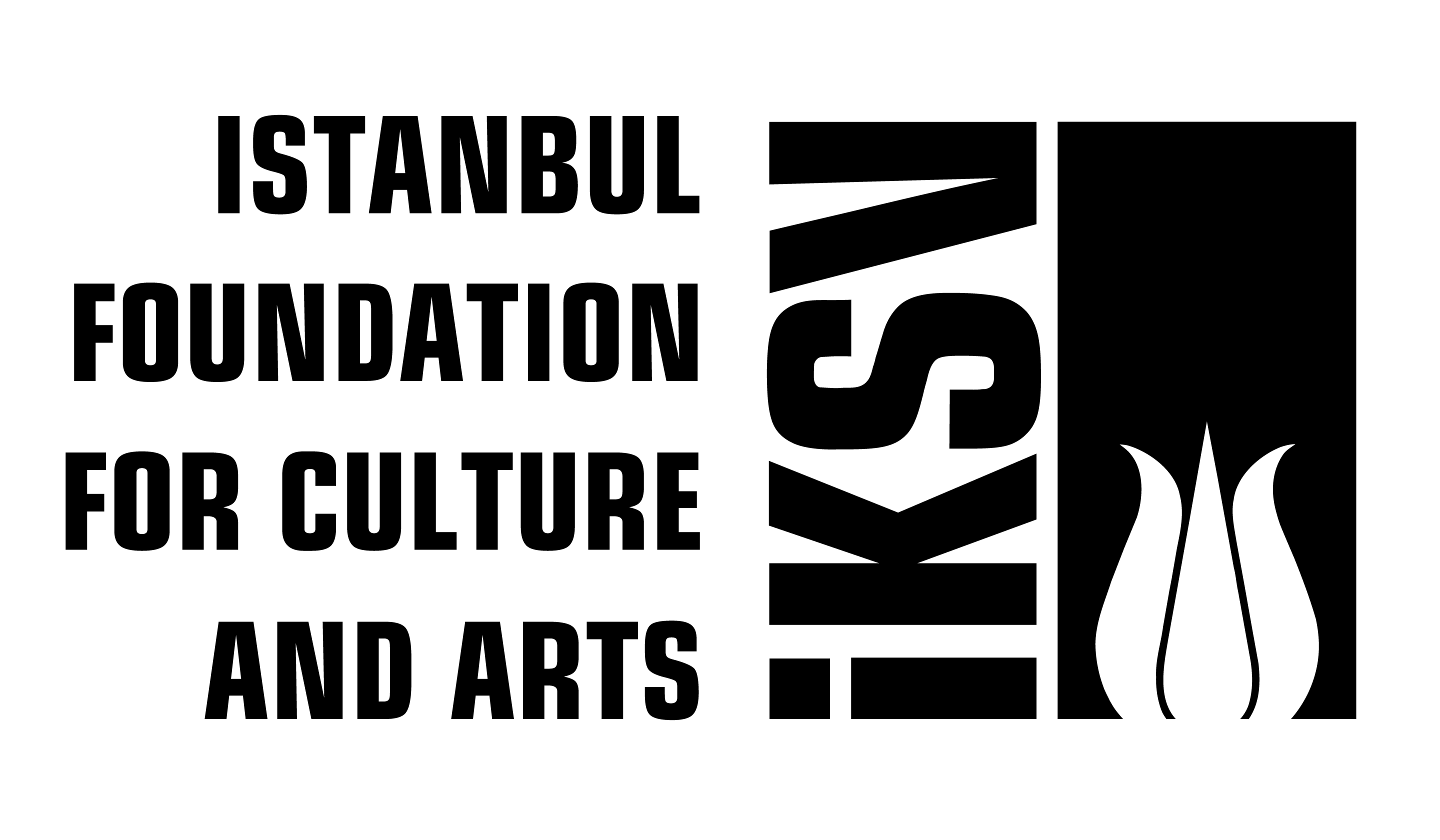İKSV has launched a new report in the scope of its cultural policy studies series published since 2011. In its ninth report titled “Arts and Culture for Ecological Transformation”, İKSV draws attention to the current ecological crisis and invites the world of arts and culture to reflect together on the problem towards devising solutions. The report offers concrete suggestions for transformation to arts and culture institutions while featuring case studies from the field research conducted with organisations in the Netherlands and England.

Fazilet Mıstıkoğlu, Özlem Ece, Hande Paker
Drafted by Assoc. Prof. Hande Paker, faculty member of Istanbul Bahçeşehir University Faculty of Economics, Administrative and Social Sciences, “Arts and Culture for Ecological Transformation” draws attention to the ecological crisis, which is one of the most urgent issues confronting humanity. It invites the world of arts and culture to ponder the issue together to construct creative change.
The report discusses the climate emergency with respect to its social, political, economic and cultural aspects and focuses on the response of arts and culture actors for an ecological transformation. Presenting an analysis that makes a comprehensive assessment of ecological problems, the report emphasises the important role that the arts milieu can play towards transformation.
>> Click here for the full text of the report titled “Arts and Culture for Ecological Transformation”.
Online field research with institutions in the Netherlands and England and an interactive network map
The report builds on the fieldwork comprising in-depth interviews conducted by the author of the report Assoc. Prof. Hande Paker and İKSV Cultural Policy Studies Research Associate Fazilet Mıstıkoğlu with various cultural institutions, civil society organisations, local governments and private sector representatives in the Netherlands and England.
Information on the organisations presented in the report and the links between them can be viewed in an interactive network map created to display visually the importance of connections.

Capitalism Works For Me! (True_False), Steve Lambert
Photo by: Oliver Rudkin, courtesy of Artsadmin.
The International Visitors’ Programme organised in collaboration with DutchCulture and Het Nieuwe Instituut in the Netherlands provided an opportunity to take a holistic look at the field. In scope of the programme, representatives of multiple cultural institutions, civil society organisations, local governments, private companies and social initiatives working along the axis of ecological crisis, and arts and culture were interviewed along with artists and changemakers. Among the participating institutions are Boekman Foundation, Bureau 8080, the City of Amsterdam, Waag, Blue City, Jan van Eyck Academie, Warming Up Festival, Casco Art Institute, Afrikaanderwijk Cooperative and Zone2Source. Under the extraordinary circumstances brought on by COVID-19, the programme was for the first time realised digitally for this report. Since all the interviews were conducted online, the report had a significantly reduced ecological footprint.
Online interviews were conducted with cultural institutions and civil society organisations that have worked on the ecological crisis in England for many years, made the issue accessible widely in the field of arts and culture, established the relevant networks and developed numerous field specific tools to reduce the ecological footprint. Interviewed organisations in England include Julie’s Bicycle, Arts Council England, British Council, Artsadmin, The Climate Story Lab and Creative Carbon Scotland.
What does the report “Arts and Culture for Ecological Transformation” offer the reader?
The report critically analyzes the emergence of the concept of sustainability, its prevalence, and the debates on its various manifestations and uses. It discusses what can be done for ecological transformation in the field of arts and culture and examines the new approaches and practices inspired by the organisations from the Netherlands and England included in the research as well as the climate movement.

Wild Longings, Curious
Photo by: Sheila Burnett, courtesy of Artsadmin.
The report also makes suggestions to cultural practitioners concerning concrete steps and measures that can be taken and policies that must be developed. It presents a diagram and a selection of green tools that may be useful for the arts and culture actors who wish to take their first steps towards ecological transformation.
Dates of global significance for the ecological crisis are listed in a timeline. A glossary with brief explanations of various ideas and concepts used in the report aims to present the reader with a readily accessible resource.
The role of arts and culture in ecological transformation
The report examines the roles played by arts and culture actors in ecological transformation in light of the field study findings. Two principal axes are identified: reducing the field’s ecological footprint and creating new narratives by mobilising the power of creative expression to propel masses into action for ecological transformation.
The first axis pertains to the arts and culture industry’s reduction of its own ecological footprint. The research shows that many cultural institutions, artists and designers prioritise the adoption of green practices.

Carbon Capture, Daniel Gosling
Photo by: Paula Harrowing, courtesy of Artsadmin.
Meanwhile, the second axis underlines the potential of creative interventions for ecological transformation. Many arts and culture actors emphasise the importance of storytelling, the power of arts to imagine anew, its capacity to offer safe spaces to discover new ideas and to build dialogues that will usher in cultural change. As storytellers, they maintain that arts and culture should play a more significant role in this transition. This section of the report asserts that arts and artists have a huge potential to increase awareness about the current ecological crisis and particularly climate change.
While looking for responses to the ecological crisis from the field of arts and culture, the report also revisits numerous issues that İKSV has been addressing in the scope of its cultural policy studies to date such as public engagement in the arts, cultural planning for local authorities and fostering cultural pluralism through the arts.
Where can the transformation start for arts and culture institutions?
The report also presents concrete green tools that may be used to respond to the question of where ecological transformation can start for arts and culture institutions. It emphasises that a social, political and cultural transformation is inevitable to stop the climate crisis, which is the most comprehensive manifestation of environmental problems. Asserting that sustainability cannot be ensured without this transformation, the report underlines the importance of acknowledging planetary boundaries. Without losing sight of the need for broader transformation that intersects with addressing issues such as inequality and democratic deficit, the report also makes a number of specific recommendations for arts and culture institutions and cultural activities toward the reduction of their ecological footprints and highlights certain practices such as using sustainable sources of energy; instituting circularity; limiting travels; and working with local producers as measures that are necessary for sustainability.
>> Click here to view the previous reports by İKSV.
Biography
Hande Paker works in the fields of political sociology and political ecology. She has carried out research on modes of civil society-state relations, politics of the environment on the local-global nexus, and cosmopolitan citizenship, with a particular focus on environmental problems and the climate crisis. Her articles have been published in various edited volumes and international journals such as Voluntas, Environmental Politics, Theory and Society, Middle Eastern Studies. She has been a Mercator-IPM fellow (2015-16) and a visiting scholar at Hamburg University. She is currently conducting studies that analyse civil society actors’ activities concerning climate justice with a focus on their local and transnational fields of action.
She holds a PhD from McGill University, Canada. She received her MA from McGill University and her BA from Boğaziçi University, Turkey. She is currently teaching at Bahçeşehir University Faculty of Economics, Administrative and Social Sciences in Turkey.
About İKSV’s Cultural Policy Studies
İKSV organises workshops, conferences, and symposia and prepares publications that accompany these activities with the aim of enriching the exchange of ideas about the arts and culture, increasing the participation of artists and art enthusiasts in this dialogue, and contributing to the development of cultural policies. İKSV also conducts cultural policies in cooperation with a variety of institutions.
İKSV collaborates with several organisations and networks that shape the EU’s cultural policies and is also part of the Turkish network of the Anna Lindh Euro-Mediterranean Foundation since 2005. İKSV continues to make collaborations with a number of NGOs as part of its cultural policy efforts. You may find the previous cultural policy reports by İKSV here, or at İKSV Kitaplık application via iPad, which can be downloaded from AppStore.
